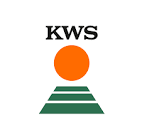KWS SAAT SE & Co. KGaA

Estimated electricity consumption
N/A
Countries of production presence
N/A
KWS SAAT SE & CO KGAA is a German company that operates in the Seeds and Agriculture Biotech sector. The company was founded in 1856 and is headquartered in Einbeck, Germany. KWS is a leading global seed producer, with a focus on developing and producing high-quality seeds for farmers around the world. The company's mission is to help farmers increase their yields and improve the sustainability of their farming practices.
KWS is committed to decarbonisation and reducing its carbon footprint. The company has set ambitious targets to reduce its greenhouse gas emissions and has implemented a range of measures to achieve these targets. One of the key measures that KWS has taken is to invest in renewable energy. The company has installed solar panels on the roofs of its facilities, which generate clean energy and reduce the company's reliance on fossil fuels.
In addition to investing in renewable energy, KWS has also implemented a corporate energy strategy to improve the efficiency of its energy use. The company has conducted energy audits to identify areas where it can reduce its energy consumption and has implemented a range of energy-saving measures. These measures include the installation of energy-efficient lighting and heating systems, the use of energy-efficient equipment, and the implementation of energy management systems.
KWS has also entered into corporate power purchase agreements (PPAs) with renewable energy producers. These agreements enable the company to purchase renewable energy directly from the producer, which helps to support the growth of the renewable energy sector and reduce the company's carbon footprint. KWS has entered into PPAs for wind and solar energy, which provide the company with a reliable and cost-effective source of renewable energy.
KWS is committed to sustainability and has implemented a range of measures to improve the sustainability of its operations. The company has developed a sustainability strategy that focuses on reducing its environmental impact, promoting biodiversity, and supporting sustainable agriculture. KWS has also developed a range of sustainable seed products, which are designed to help farmers improve the sustainability of their farming practices.
One of the key sustainable seed products developed by KWS is the "KWS Delta" variety of corn. This variety is designed to be more resilient to climate change and to require less water and fertilizer than traditional corn varieties. The KWS Delta variety has been shown to increase yields and improve the sustainability of farming practices, making it a popular choice among farmers around the world.
KWS is also committed to promoting biodiversity and has implemented a range of measures to support this goal. The company has developed a range of seed products that are designed to promote biodiversity, including wildflower mixes and cover crops. These products help to support pollinators and other beneficial insects, which are essential for maintaining healthy ecosystems.
In addition to its focus on sustainability, KWS is also committed to innovation and research. The company invests heavily in research and development, with a focus on developing new seed varieties that are more productive, more resilient, and more sustainable. KWS has a network of research facilities around the world, which enables it to develop seed varieties that are tailored to the specific needs of farmers in different regions.
KWS is a leader in the Seeds and Agriculture Biotech sector and is committed to sustainability, innovation, and research. The company's focus on decarbonisation, corporate energy, corporate PPA, and renewable energy is helping to reduce its carbon footprint and support the growth of the renewable energy sector. KWS is a company that is committed to making a positive impact on the world, and its focus on sustainability and innovation is helping to create a more sustainable future for all.